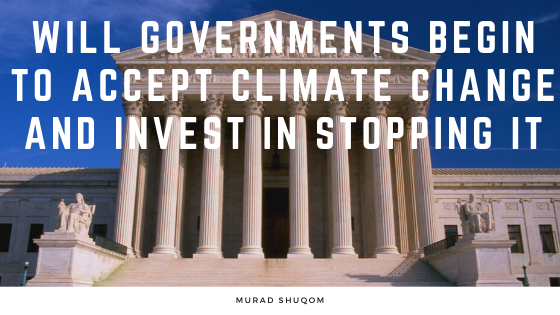As the recent bush fire disasters currently cycling throughout the entirety of the Australian continent have shown, the effects of climate change are already beginning to manifest themselves in truly devastating and irrefutable ways.
What the effects of humanity’s continued indifference to the crisis could look like in ten or twenty years is anyone’s guess. Still, the Australian government’s response to the current fire crisis has so far inspired little confidence from the country’s exhausted and frightened populace.
Led by climate-change-denying Prime Minister Scott Morrison, Australia has essentially been the canary in the coal mine for the climate change debate over the last year. Australia’s summer season is far from over, and Morrison’s deep ties to Australia’s coal and oil industries have led many of his critics to label him an enabler of some of the world’s biggest polluters. It is not hard to draw parallels between the looming humanitarian crisis within Australia and the negligence of the kind of political backers that Morrison unquestioningly supports.
But even the fiercest advocates for action on climate change admit that changing the minds of government officials in countries like the US and Australia will take some doing. In the United States alone, cash infusions from big-level polluters make up a substantial portion of donations to both of the US’s major political parties.
Politicians with their heads stuck firmly in the sand aren’t the only problem. Changing the minds of the population at large is another major issue when it comes to climate change. Still, international companies have spent so much money on effective PR campaigns refuting climate science that independent voices on the subject do not have any voice on the matter.
Indeed, even old-guard “intellectual” branches of conservatism seem to doubt the word of scientists when it comes to facts about climate change. Publications such as The American Conservative and The National Review regularly run articles challenging the notion that humanity has created a climate crisis. (It is only in recent years that such publications have even conceded that the climate is changing.)
But what the situation in Australia shows is that the effects of climate change are becoming almost impossible to deny. In the fallout from his response to the fires, moreover, Australian PM Morrison may find himself waging an uphill battle at the polls in the next election. Hardline conservatives who currently believe that climate change is a liberal hoax may also end up changing their tune when they find themselves displaced by rising sea levels or out-of-control forest fires.
Indeed, the world at large already seems to be waking up to the reality of the climate threat. How governments will take action and whether their efforts will occur in time to matter are issues that won’t be known for years. For many people, however, it is clear that we are quickly reaching the point of no return.

